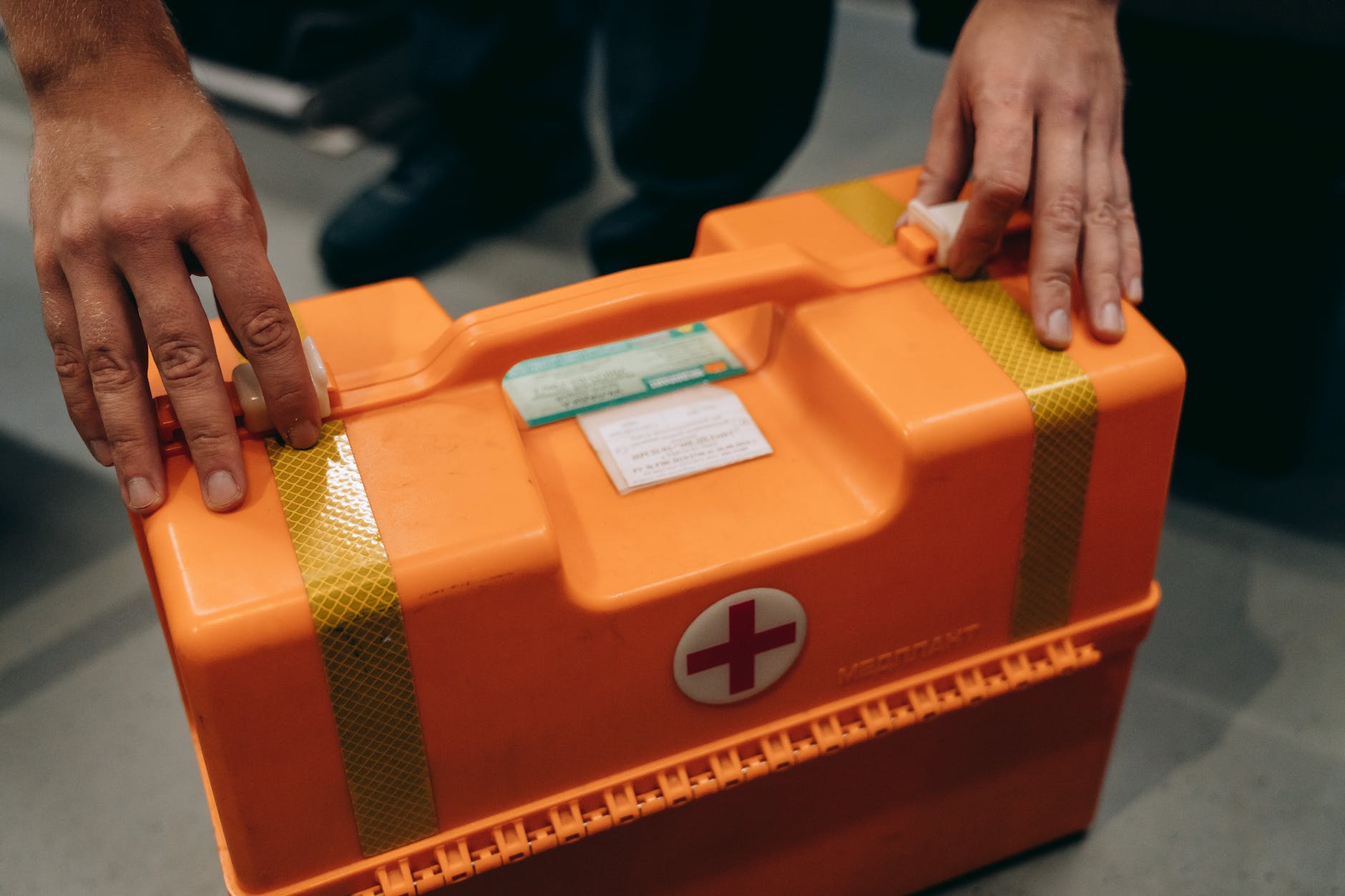
First Aid Box
Embarking on exciting journeys or outdoor adventures brings joy, but unexpected mishaps can occur anywhere. That’s why understanding basic first aid is crucial for travelers and outdoor enthusiasts. Whether you’re exploring new landscapes or hiking trails, being prepared can make a significant difference in handling unforeseen situations.
This blog aims to equip you with essential first-aid tips, ensuring your health stays a top priority while on the go. Let’s delve into practical advice that can make your travel experiences thrilling but also safe and well-prepared.
Treatment for Sprains and Strains
Prompt and proper treatment can aid in a quicker recovery when the unexpected occurs and a sprain or strain interrupts your adventure. First and foremost, rest is essential. If you’ve twisted an ankle on a hiking trail or strained a muscle during a camping activity, take a moment to allow your body to recuperate.
Applying ice to the affected area can help reduce swelling, like giving your body a little cold therapy. Compression with a bandage provides support and further diminishes swelling. Elevating the injured limb is another practical step—lifting it slightly above heart level aids in minimizing swelling.
Know Emergency Numbers
Knowing the emergency numbers of the area you’re visiting is as essential as packing your bags. Imagine you’re on a road trip, witnessing a car accident, or encountering a medical emergency. In such situations, being aware of the local emergency number, often 911 in many places, can be a lifeline.
It’s not just about accidents; sudden illnesses can also arise. Suppose you’re exploring a remote national park, and someone in your group develops severe allergies. The local emergency number ensures you can quickly connect with professional help. Moreover, different countries might have distinct emergency numbers, so it’s crucial to research and note them before your journey.
Whether in bustling cityscapes or serene natural settings, having emergency numbers readily available enhances your ability to respond effectively to unforeseen circumstances. It’s a small but crucial step that can make a significant difference in ensuring the safety and well-being of yourself and those around you during your travels.
Carry a First Aid Kit
A well-prepared traveler or outdoor enthusiast considers a first aid kit an indispensable companion. Picture this: you’re on a camping trip, and a minor accident leads to a small cut or scrape. A first aid kit in your backpack lets you promptly clean the wound, apply an antiseptic, and cover it with a bandage, preventing potential infections. It’s not just about cuts—imagine being in a remote area where medical assistance is not readily available. Building a first aid kit becomes your primary response for handling unexpected situations, from insect bites to minor burns.
Consider the versatility of a first aid kit during a hiking expedition. While traversing challenging terrains, blisters might develop on your feet. A blister pad from your first aid kit can alleviate discomfort and prevent further irritation. The kit’s contents, including adhesive tape, pain relievers, and tweezers, offer solutions to various health concerns on the go.
Basic Wound Care
Basic wound care is a fundamental skill for every traveler and outdoor enthusiast. Imagine you’re on a beach vacation, and a playful day leads to a minor injury—a coral scratch on your foot. Proper wound care begins with cleaning the wound thoroughly with soap and water to prevent infection. Applying an antiseptic ointment, readily available in your first aid kit, further safeguards against bacteria. Covering the wound with a sterile bandage or dressing provides an additional layer of protection, allowing the healing process to occur without external contaminants.
Consider hiking in a forest, where a slip on moss-covered rocks results in a scraped knee. Basic wound care involves assessing the severity of the injury, cleaning it gently, and applying an appropriate dressing. The goal is to create an environment that supports healing while minimizing the risk of infection.
Dealing with Burns
Navigating how to deal with burns is a crucial skill for travelers. Picture a scenario during a beach vacation where a day in the sun results in sunburn. In this case, applying aloe vera or a soothing lotion can provide relief and aid in healing. Imagine a camping trip where cooking over an open flame results in a minor burn. Quick action is key—cool the burn with running water to alleviate pain and prevent further damage. It’s vital to avoid using ice directly on the burn, as extreme cold can exacerbate the injury.
Consider a hiking adventure where encountering hot surfaces can lead to unexpected burns. Whether it’s touching a hot pot or a heated surface, immediate cooling with clean water is essential. These scenarios highlight the diverse situations where burns can occur during outdoor activities. Being prepared to handle thermal and sun-related burns ensures that your adventures remain enjoyable and safe. While minor burns can often be managed with simple first aid, seeking professional medical attention for more severe cases is crucial. Understanding the appropriate steps to take in different burn scenarios empowers you to respond effectively and safeguard your well-being on the go.
Safeguard Your Journeys
In conclusion, prioritizing first aid knowledge for travelers and outdoor enthusiasts is a gateway to safer and more enjoyable adventures. From treating sprains and strains to being aware of local emergency numbers, carrying a well-equipped first aid kit, and mastering basic wound care and burn management, these skills empower individuals to navigate unexpected challenges.
Whether strolling through urban landscapes or exploring the great outdoors, the ability to respond effectively to health concerns on the go is invaluable. As you embark on your next journey, remember that preparedness is the key to turning potential emergencies into manageable situations.
By incorporating these first-aid tips into your travel routine, you not only enhance your safety but also contribute to a culture of responsible and well-informed exploration. Stay prepared, stay safe, and let your adventures be defined by the joy of discovery rather than unforeseen health concerns.






